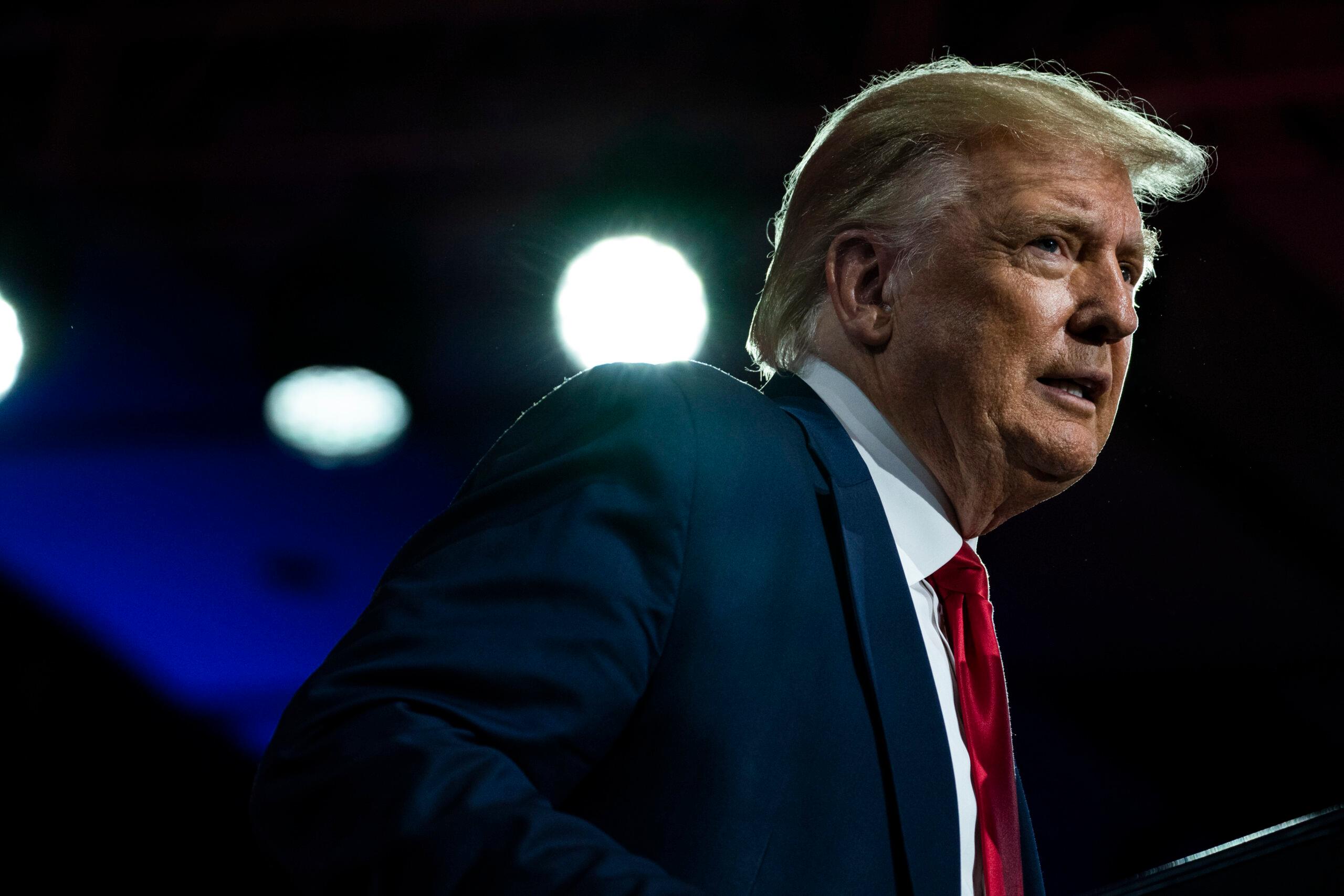
As President Donald Trump continues to tweet out baseless claims about voter fraud, Colorado’s Republican lawmakers in Congress have followed their colleagues by remaining largely silent about the results or whether they accept that the election is settled.
CPR News reached out to all four Republican members of the delegation — Sen. Cory Gardner and Congressmen Ken Buck, Doug Lamborn, and Scott Tipton — for comment and received no reply. This article will be updated if we do.
However, in an August appearance on CPR’s Colorado Matters, Rep. Ken Buck Buck dismissed any concern that if Trump lost he might not concede, saying it was “unbelievable.”
“I don't know where this nonsense comes from,” he said at the time. “It's unbelievable to me that people are that afraid of our system breaking down, that there are that many people in our system that would allow a fraudulent election or a coup or other conduct that is just things that haven't occurred in the past. And that, that won't occur.”
But this is what is exactly what the president is now alleging — without proof and in the face of mounting legal losses — Democrats have done. And his claims appear to be sowing distrust of the electoral process with an increasingly large segment of the American population.
The current silence by Colorado’s top elected GOP officials comes as no surprise to Tyler Sandberg, a Colorado Republican operative. He sees no reason for Republicans to “kick the hornet’s nest right now and create more of a battle” by pushing Trump to concede.
“We’re going to have a very thorough examination of election results, which I hope — long term — will prove to people how secure our elections are,” Sandberg said.
Former Colorado GOP chair and Republican political consultant Dick Wadhams agrees.
“I think Republicans just want to get past this. And there's no percentage in picking a fight with President Trump at this point if you’re in office,” he explained.
Wadhams said, there is “no doubt in my mind” that Biden won, and he wishes Trump would tweet less and provide concrete evidence to back up his claims.
“It overshadows what could be legitimate allegations of election fraud,” he said. “There are lots of charges so far, but no real evidence.”
Before the presidential election results were called by the Associated Press and other media on Saturday, both GOP Reps. Ken Buck and Doug Lamborn took to Twitter to echo Trump’s call for “all legal votes” to be counted, in the name of protecting U.S. election integrity. Neither pointed to any examples of widespread voter fraud.
Republican Senate Majority Leader Mitch McConnell on Tuesday said none of what is happening now is “unusual.”
“Until the Electoral College votes, anyone who’s running for office can exhaust concerns about counting in any court of appropriate jurisdiction,” McConnell said. “At some point here we’ll find out finally who is certified in each of these states, and the Electoral College will determine the winner, and that person will be sworn in on January 20th.”
The Electoral College is set to meet on Dec. 14 with electors casting votes reflective of the presidential outcome in their states.
Wadhams accuses Democrats of being “hypocrites and frauds” for pushing Trump to concede a week after the election. He notes that Democrats “did not exactly go quiet into the night after the 2016 election.” On the left a “resistance” sprang up, with many believing Trump’s win was due to Russian interference, more than the will of the voters.
The difference in 2016 was that elected Democratic leaders swiftly acknowledged Trump as the winner of the election. Hillary Clinton conceded the day after the election, shortly after national networks called the race for Trump. That same day, President Barack Obama spoke in the White House rose garden, saying, “we are all rooting for his success.”
However, there have been cases where Democratic losers have not ever formally conceded — Sandberg points to Stacey Abrams’ Georgia gubernatorial loss in 2018, a race that also went through post-election legal maneuvering, as well.
“It’s clear there is this bipartisan growing momentum to not just be angry about election results but cast doubt on the integrity of the election itself,” Sandberg said.
Republican Representative-elect Lauren Boebert, who declared victory in her race well before the Colorado vote is certified on Nov. 13, is a staunch supporter of Trump and has amplified his unsupported claims of fraud. She has tweeted often on the subject in the past week — declaring the election is “far from over” and that there is evidence of fraud.
The Trump campaign has had little success so far in court. In the battleground state of Michigan, it tried to build a case around a poll worker who claimed they were handed a post-it note alleging improper handling of late-arriving ballots. A judge rejected the effort saying it amounted to hearsay. Two voters have filed suit in Detroit, alleging a number of crimes, which are all disputed by city officials.
Many Republican officials have acknowledged these challenges will not likely change the electoral college win for Biden — in part because if even the cases succeeded, they involve too few votes to matter.
Sandberg noted that some Republican elected officials are pushing back against this false narrative of widespread election fraud.
The Republican Secretary of State in Georgia said his state’s election administration was a “resounding success” and the process of reporting the results “has been orderly and followed the law.” He added his office is investigating any and all allegations of fraud. That has not stopped the state’s two Republican Senate candidates from alleging fraud and calling for him to step down. The Georgia presidential results are still too close to call, with less than 13,000 votes separating the candidates.
“I don’t think our elections are fraudulent at all. I do not believe there is widespread fraud, but I think we need to find ways to change that perception,” Sandberg said.
And the place to start, he believes, is to take politics out of running elections. He argued that across the country, Secretary of State offices and county-level elections administrators should be non-affiliated positions.
Sandberg said Trump and his tweets are not really the problem. What Trump has done is tapped into a wider public trend of distrust in institutions, including voting.
“Would you allow an Oakland Raiders fan to be the referee for a Broncos game? Of course not. There’d be inherent distrust of that,” Sandberg explained. “I think having partisan elected officials running our elections is just ripe for distrust.”









